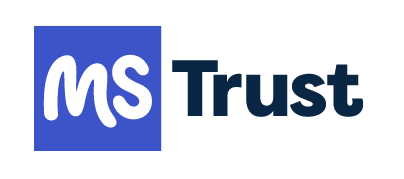Before you watch this webinar
Enhancing your learning experience begins with understanding you better. Collecting data enables us to tailor our educational content specifically for our audience. Discover more about how we handle your information in our Privacy Policy.
Event
New service models
Our sponsor

This activity has been supported by sponsorship from and Roche. The sponsor has had no control over the educational content of this activity.
CPD acceditation
This webinar has been approved by the Federation of the Royal Colleges of Physicians of the United Kingdom for 1 category 1 (external) CPD credit(s). To claim the credit please email hughskelton@neurologyacademy.org
Questions answered
- 03:15 – COVID-19 has turbo charged changes in the NHS that normally would have taken decades and sometimes more to implement. Amy, what has been your experience over the last three months in Hampshire?
- 06:17 – George, as a person with MS, what has your experience of interacting with your service been like over the last few months?
- 09:41 – Has non-attendance differed at all in the move from in-person to remote appointments?
- 10:47 – Bernie, you set up NeuroResponse almost a decade ago. Do you think the changes we are seeing are good?
- 13:09 – Alyson, what do you recommend we do, post-lockdown, to ensure these changes are embedded into NHS services?
- 17:28– Amy, it sounds as though you are not going back to the previous service model. Will you be adopting a hybrid model going forwards?
- 18:50 – George, have you seen increased activity on the Shift.ms platform over the last couple of months?
- 19:47 – If we say healthcare is a basic human right, and that we are going to deliver it via technology platforms, do technology platforms become a basic human right?
- 24:17 – As a nurse, I crave the personal interaction with service users, but, working in policy, I see the benefits of technology for continuity of care and progression. Do you think a shift towards technology might impact job satisfaction for staff, and the type of people who want to join the profession?
- 26:03 – Bernie, you have built automatic metrics into the NeuroResponse service. How have you taken clinicians out of the UTI loop and generated evidence on hospital admissions? Is that something we could transfer across into this new space of service development?
- 30:46 – George, as a person with MS, would you like to have a relapse service that you could clock into 24/7?
- 31:40 – Have any of you tried using technology to run joint consultations with fellow healthcare professionals?
- 35:00 – Could tech-driven services like NeuroResponse help people with secondary progressive MS feel more included?
- 38:02 – Aren’t these the patients that the community MS nurses and advanced MS champions should be servicing?
- 40:00 – Regarding governance, is anyone coming up against barriers, for example, using Zoom and needing more consent disclaimers?
- 42:20 – Have there been any national discussions regarding coding for the time, especially in joint clinics? If so, how do you record your activity to provide evidence of care?
- 47:07 – What about NHS governance that says we shouldn’t be communicating with patients via email?
- 50:18 – Are there any other opportunities that we are missing?
Summary
COVID-19 has dramatically transformed care pathways, taking virtual consultations from rarity to normality almost overnight. In this webinar, our speakers talk about how this has been achieved in MS, the pros and cons of this new way of working, and how to embed positive change for the future.
Opening up the discussion, Prof Gavin Giovannoni, said that COVID-19 had “turbocharged changes in the NHS”, with transformations that would usually have taken decades to implement happening in months.
How services are changing
Amy Harbour, whose community-based MS service covers around 150 miles of south east England, said clinics stopped when the team was redeployed at the start of the pandemic. They have now all been brought back online in the form of telephone or video appointments.
“What we have found is that clinics have shortened since we’ve started doing them virtually,” she said, explaining that appointments that would usually take half-an-hour face-to-face now took 10 to 15 minutes.
“I don’t know if that is because we’ve given people the chance to self-manage for a short period while we were redeployed and they have found the tools and techniques to do that, or whether they just feel a little bit more comfortable cutting the interview short if they want to.”
George Pepper said remote appointments were more efficient and more convenient, particularly those who find it difficult to travel or need to take time off work to attend.
He said: “Remote appointments were not even an option before, and this seems to have forced the hand of departments that were perhaps previously resistant to change. That is certainly a major plus.
“A number of people have told me that video calls between healthcare professionals and patients is a leveller. It removes that top down aspect that exists in in-person clinic appointments.”
Alyson McGregor agreed, saying that this change in the power balance could contribute to the success of shared decision making.
What’s more, it could facilitate joint clinics without the well-known logistical challenges of getting multiple members of the MD in the same room at the same time, she said.
Learning from experience
Bernie Porter set up NeuroResponse, a digital care model to improve out-of-hours care for people with MS and other long-term conditions, a decade ago.
While there are many benefits of virtual care, including that people with MS are not abandoned as the health service deals with the COVID-19 pandemic, she said there needed to be a balance.
“I have heard some people say they do not like remote-only options. There is value in going to your centre and seeing your team face-to-face. Going forward, we need to be careful not to lose the human contact element,” she said.
The panel also spoke about the digital divide and the risk of digital exclusion – not everyone has access to the internet or a smart phone, they highlighted.
“If we say that healthcare is a basic human right and that we are going to deliver it via technology platforms, do the technology platforms become a basic human right?”, asked Gavin.
Overcoming this barrier, Alyson said, would take a whole system approach. Her fellow speakers agreed, explaining that the cost savings of more remote working could be reinvested into connectivity projects.
“My mileage is approximately 150 miles per month. In the last three months, it’s been zero. Also, there’s all the rooms we hire out and have to pay for. That’s a big saving,” said Amy.
Practical challenges
While changes have been rapid, practical challenges to embracing digital healthcare remain, the panel said. One questioner said their trust has been told not to use Zoom, and another said the use of patient emails had been ruled out.
Alyson once again emphasised the importance of a whole-system approach.
“It seems that the NHS in different places has made different decisions. One of those, sadly, is that Zoom is not safe enough to use,” she said.
“The fact that people are using different platforms is difficult, but our experience in most places is that people are taking a common-sense view around whatever will work.”
The speakers were also asked about recording virtual activity to provide evidence of care. Bernie explained that remote appointments should be scheduled as clinic appointments, with all the same governance as a face-to-face meeting.
Hybrid future
The panel agreed that there were clear benefits to virtual clinics, both for the patient and the healthcare professional.
They also acknowledged, however, that telemedicine wasn’t the right choice for every patient, every time, and that a hybrid model would probably be the best way forward.
“While I think a lot of technology is good, there’s something about sending a doctor into clinic or a nurse into their home to get an overall view of how they are.
“If I am seeing someone who I am going to have a relationship with for a long time, then I want to see them and assess in clinic how they have changed or how they differ,” said Amy.
Our Multiple Sclerosis webinars are available on SoundCloud:
soundcloud.com/neurologyacademy
Our sponsor

This activity has been supported by sponsorship from and Roche. The sponsor has had no control over the educational content of this activity.
Speakers
 Alyson McGregor
Alyson McGregorNational director, Altogether Better
 Prof Gavin Giovannoni
Prof Gavin GiovannoniProfessor of neurology, Barts and The London School of Medicine and Dentistry
 Bernadette Porter
Bernadette PorterConsultant nurse in Multiple Sclerosis, The National Hospital for Neurology and Neurosurgery, UCLH NHS Foundation Trust
 Amy Harbour
Amy HarbourMultiple sclerosis nurse specialist, Southern Health NHS Foundation Trust
 George Pepper
George PepperCo-founder and CEO, Shift.ms
Encouraging excellence, developing leaders, inspiring change
MS Academy was established in 2016 and in that time has accomplished a huge amount with exciting feedback demonstrating delegates feel inspired and energised along their personal and service development journeys. The various different levels of specialist MS training we offer are dedicated to case-based learning and practical application of cutting edge research.




